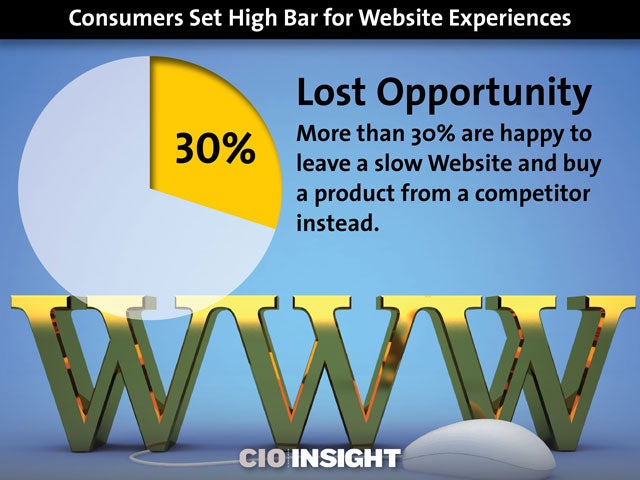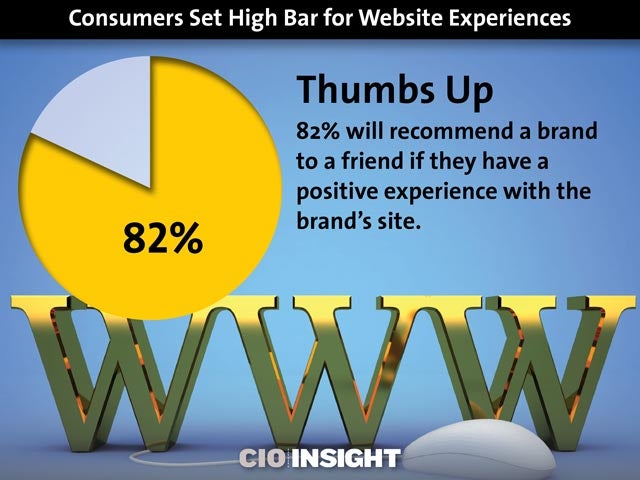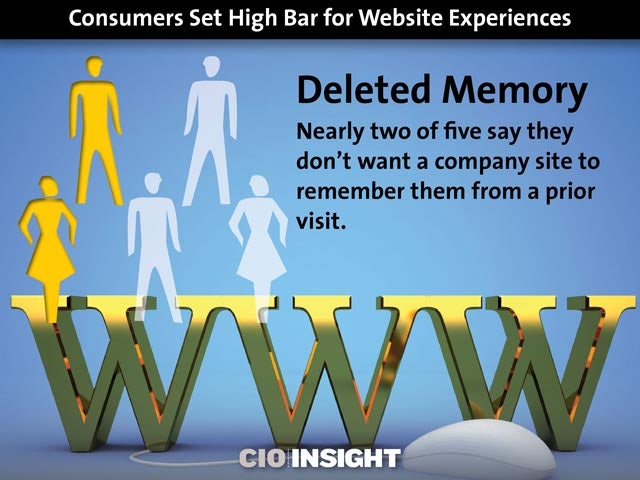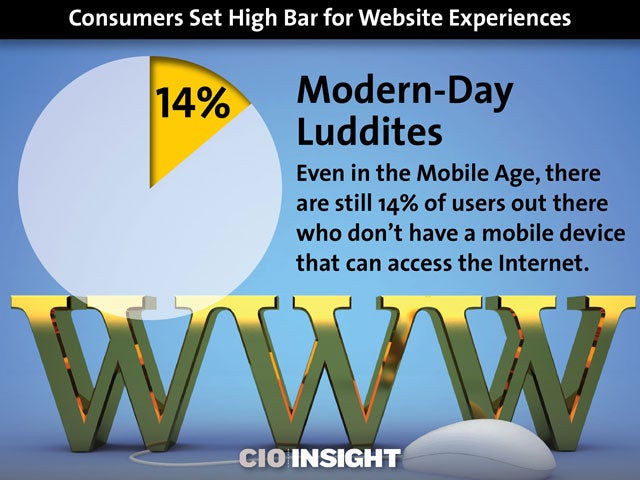
Consumers Set High Bar for Website Experiences
 Bad Timing
Bad Timing
About three of five users aren’t willing to wait more than five seconds for a webpage to load before they leave a site—and one-fifth won’t even wait three seconds.
 Lost Opportunity
Lost Opportunity
More than 30% are happy to leave a slow Website and buy a product from a competitor instead.
 Thumbs Up
Thumbs Up
82% will recommend a brand to a friend if they have a positive experience with the brand’s site.
 Mobile Mania
Mobile Mania
More than 50% most often use a smartphone or tablet to access Websites, and over 85% use a mobile device to do so at least some of the time.
 High Expectations
High Expectations
More than 40% expect business sites to be equally fast, whether on mobile or on a desktop.
 Deleted Memory
Deleted Memory
Nearly two of five say they don’t want a company site to remember them from a prior visit.
 Most Popular Mobile Devices for Accessing the Internet
Most Popular Mobile Devices for Accessing the Internet
iPhone: 33%, Android phone: 31%, Tablet: 19%, Windows phone: 2%, BlackBerry phone: 1%
 Modern-Day Luddites
Modern-Day Luddites
Even in the Mobile Age, there are still 14% of users out there who don’t have a mobile device that can access the Internet.